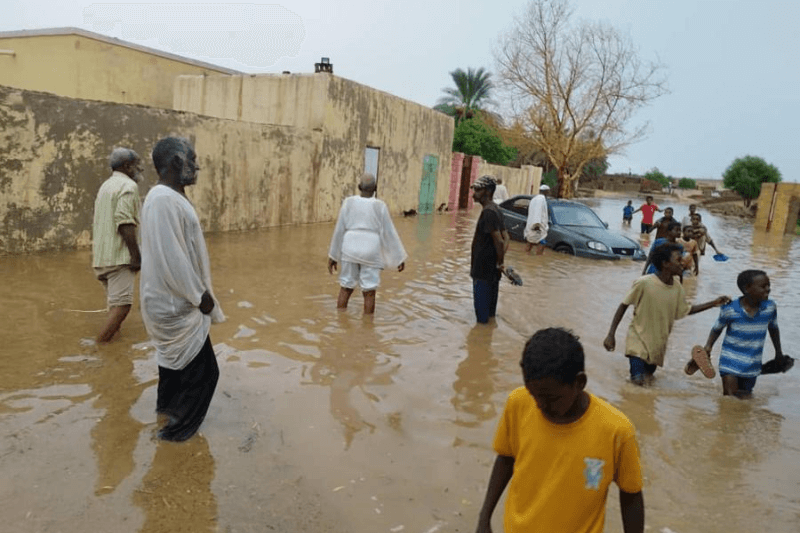The United Nations warned of a worsening humanitarian situation in Sudan, Chad, and South Sudan, where heavy rain and flooding make access to people in need more and more challenging. In war-scarred Sudan, extreme logistics have become worse as a result of flooded roads and thick mud impeding efforts to get vital supplies to millions in need.
The situation is dire in war-torn Sudan, where more than half of the population are facing crisis levels of hunger. While aid trucks have finally begun reaching Darfur, they face serious delays due to impassable roads. “We need maintained and expanded access so that we can ramp up our assistance, save lives and prevent famine from spreading,” said Leni Kinzli, a WFP spokesperson in Sudan.
A conflict beginning in April this year between the Sudanese army and the Rapid Support Forces, a paramilitary group, has left several million displaced. The number was increased by flooding from the recent downpours: over 317,000 people were currently affected, out of which 118,000 have been newly displaced by the flooding.
Besides displacement, the flooding has caused an outbreak of cholera because of the infected water sources. In this way, this outbreak has also threatened an already embattled citizenry trying to survive through the ongoing violence and degrading living conditions.
Keep Reading
Over a thousand deaths have resulted from the fighting, with close to eight million people displaced from their homes. The continuing rainy season is foreseen to further deteriorate the humanitarian situation, hence aid agencies call for immediate, unconditional access to conflict areas.
At the same time, however, access and infrastructure challenges remain a key bottleneck, with the UN and international humanitarian organizations working at breakneck speed to provide relief. Without swift action, the risk of famine and outbreaks of disease will continue to rise, placing at risk the lives of millions.

